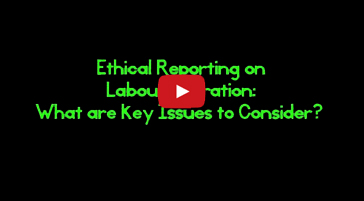Labour migration: Guidance for journalists

The ILO is firmly committed against these negative forces and supports the development of balanced narratives that recognize the positive contribution of migrants. Policy-makers and the media have an important role to play in improving public perceptions of migrant workers and refugees, and doing away with the “us versus them” discourse altogether.
Focus on the Media Initiative in the Middle East
The ILO is working with media professionals, trade unionists and human rights advocates on improving current media reporting in the Middle East context and beyond. The objectives of the initiative include familiarizing participants with ILO policy prescriptions developed on the basis of international human rights and labour standards and empirical research, promoting the use of appropriate rights-based language, and supporting the production of “untold” stories.The ILO-Panos regional media initiative has to date consisted of one inter-regional meeting of editors from South Asia, North Africa and the Middle East, three national workshops for journalists and trade unionists focusing on Jordan, Bahrain and Oman, one global workshop with the Al Jazeera Network and one regional consultative meeting involving a number of expert practitioners from the International Trade Union Confederation, the Arab Trade Union Confederation, Human Rights Watch, Amnesty International and Migrant Forum in Asia, among others.
This regional media initiative aims to advance the migrant protection agenda in two distinct ways. First, by providing an opportunity for the ILO to explain and debate with the media and trade unionists the relevance of international labour standards as well as its policy agenda on fair migration. Second, by helping to build bridges between the labour movement, human rights organizations, grassroots NGOs and journalists reporting on human and labour rights, allowing them to explore together “untold” stories and defend democratic values.


